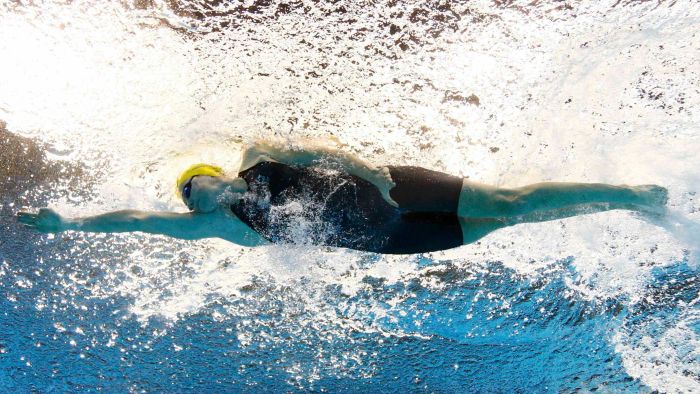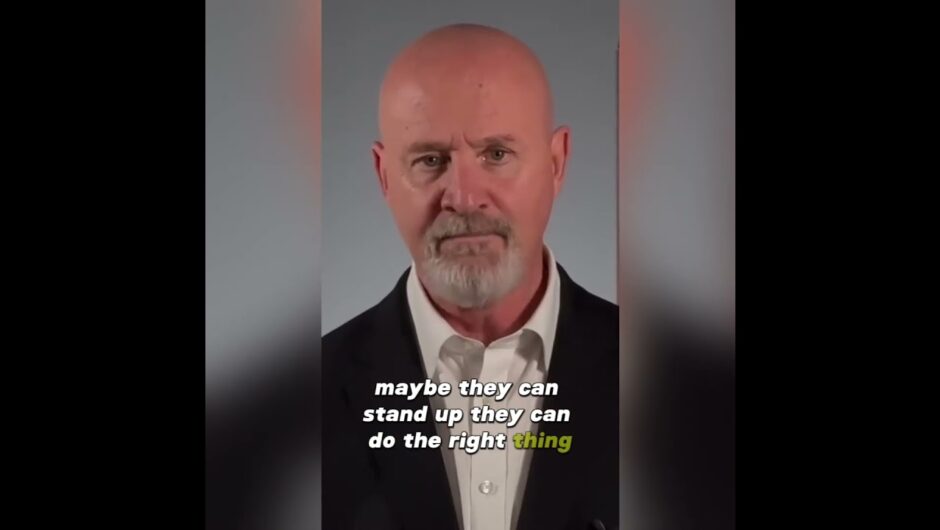After all the hype, what would it mean for Brisbane and Queensland if it were to host the 2032 Olympic Games and would it really be worth it?
Australian gold medallist Paralympian Kurt Fearnley said “yes — absolutely yes”.
“Mate, I’m so excited,” he said.
“From the Sunshine Coast down to the Gold Coast, if they get this across the line, everyone will be able to get that hands-on experience of the Olympic and Paralympic Games.”
The champion wheelchair athlete says the games have the power to change the way thousands of kids see their future.
“I remember that first day that it was announced that the Sydney 2000 games would be coming to Australia,” he said.
One of those children who already have stars in their eyes at the mere prospect of a home Olympics and Paralympics is Anouk van Doore-Nave.
The eight-year-old plays soccer at the Oxley United Football Club at Corinda in Brisbane’s south.
“It’s really exciting because I want to go to the Olympics. It’s really fun,” she said.
Given past experience though, the Games are likely to cost far more than they bring into the economy.
“Look, I think there are so many aspects of hosting an Olympic and Paralympic Games that are above and beyond the cost of hosting it,” Mr Fearnley said.
It can’t be ignored though that the Games will be an expensive exercise because the Olympic and Paralympic Games have a reputation for cost blowouts.
It’s already tipped to cost more than $5 billion based on what the Australian Olympic Committee president John Coates estimates.
Despite ticket sales, endorsements and the International Olympic Committee (IOC) covering much of the coasts, a feasibility study still predicts a shortfall of about $900 million, which would be paid for by ratepayers.
Olympic stadiums lie abandoned
But the Committee for Brisbane, a not-for-profit group that promotes the city’s virtues, believes the IOC’s new approach will reduce those costs and make them manageable.
The committee’s chief executive Barton Green said it was about lessening the cost burden and reducing the number of surplus facilities left behind.
“The new model for the Games is no new stadia unless it can be demonstrated that the stadium has an ongoing and permanent use,” Mr Green said.




With stadiums and arenas lying abandoned in Rio de Janeiro, PyeongChang and scores of other former Olympic cities, the IOC is looking for bids that can use existing sites, rather than building venues from scratch.
The Brisbane bid’s Venue Masterplan proposes seven new facilities, which could be reduced to just two by using more of the existing competition venues.
Mr Green said the Olympics would force upgrades of road and rail access in the south-east, which is a big bonus.
“The permanent benefit for our community is a better and faster-connected region, both by road and rail, and what other forms of transport we may have in 2032,” he said.
“So there can be some really permanent benefits for the community that the focus of the games can help deliver.”
One logistical aspect organisers can’t get around is where everyone will sleep.
The same IOC feasibility study predicted Brisbane would see a shortfall of 61,000 rooms by 2032 as it would require more than 80,000 beds for athletes and spectators.
That gives South-East Queensland 10 years to build the equivalent of 600 medium-sized hotels.




In a time when mass gatherings are cancelled, banned or curtailed, it’s hard to believe we’ll be packing stadiums full of people.
But virologist Kirsty Short said by 2032 that would not be a concern.
“We’re already seeing a drop in global cases with the initial vaccine rollout. That’s only going to increase as we get more vaccines rolled out across the world,” Dr Short said.
Another bonus for Mr Fearnley is the benefit of having something to look forward to.
“I just think that we’re in one of the most challenging times of our lives,” he said.
“That’s the first step that we take to get out from underneath what this pandemic has put us all [under].”




Despite the financial cost, the logistics and the arguments over whether the games really deliver a return on investment, there’s an intangible benefit that cannot be measured.
It’s the excitement and inspiration that people like Kurt Fearnley call “life-changing.”
From that point of view, it’s definitely worth it.
But you’ll have to beat the champion athlete to get first dibs on tickets.
“I will guarantee, if we win these games, I will be the first lining up to get tickets to the Paralympics with my kids,” he said.







